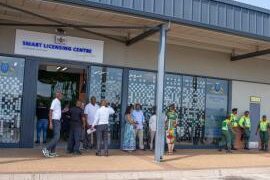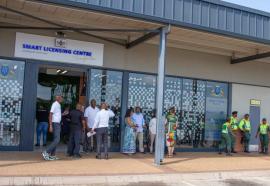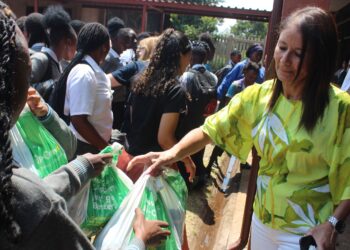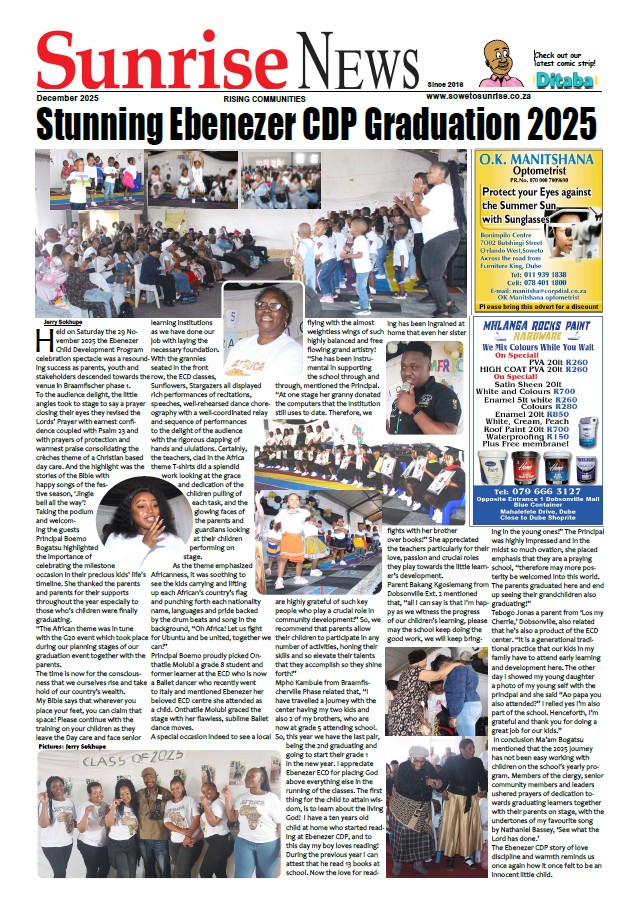With Cybersecurity Awareness Month being observed in October, Digify Africa Head of Client Services Omphile Kgwathe-Nkiwane has outlined practical guidelines that can keep South Africans safe online.
Cybersecurity Awareness Month is a global initiative that raises awareness about online safety and empowers individuals and businesses to protect themselves from cybercrime.
To promote online safety, the Government Communication and Information System (GCIS) hosted a webinar on Thursday to mark the month under the 2025 theme: “Secure Our World”.
The webinar was aimed at empowering the public with practical tools that will enable them to use online platforms responsibly and to protect themselves against any possible dangers that may arise while using the platforms.As part of an initiative to educate parents and guardians about cyber safety,
Digify Africa has created a WhatsApp Learning Bot called Kitso.“It offers tools and techniques to help you and your loved ones stay safe online. The WhatsApp learning chat bot is an educator. We give these chat bots personalities; it’s like you are talking to someone.“The content is aimed at educators, parents and guardians. In the past, the boogeyman was on the streets but now he is on the internet,” she said.
Kitso can be added to one’s contacts on WhatsApp by typing in the number 076 593 7181 and saving the contact as Kitso.
“With so much information online, some people find it difficult to distinguish between what is real and what is not and that is why we created the WhatsApp learning bots. We wanted to make the content easy for anyone to read the content and use it in a practical way,” Kgwathe-Nkiwane said.
The public can keep safe online by following these guidelines:
• Use strong and unique passwords: Make sure to use a combination of uppercase and lowercase letters, numbers, and symbols. Don’t use your name and your children’s name. Make it difficult for people to hack your accounts.
• Two-factor authentication: Use a two-factor authentication security method that requires two distinct forms of verification to access an account or system.
• Recognise phishing attempts: Make sure that you do not click on suspicious links and ensure that the email that you have received is authentic. Look out for requests that are out of character. Look out for sms’s informing you that you have a parcel to pick up when you did not place an order. Do not follow instructions from individuals requesting an OTP for banking or asking for a pin code to a bank account or from people claiming that your bank account has been compromised and they can help. Look out for individuals who call you and rush you to make a decision about your bank account.
• Safety on social media: Make sure that you don’t arrange meetings to meet a person that you have met online.
• Use secure connections: Very often malls and airports offer free access to the internet that does not need a password. While there is nothing wrong with the internet connection, if there is no password, you could be exposed to hackers who can hack into your bank account. Do not use open Wi-Fi to access sensitive information on your phone or laptop.
• Use critical thinking, if it is too good to be true, it probably is. If it does not feel right, it’s probably not right.
Soweto Sunrise News































